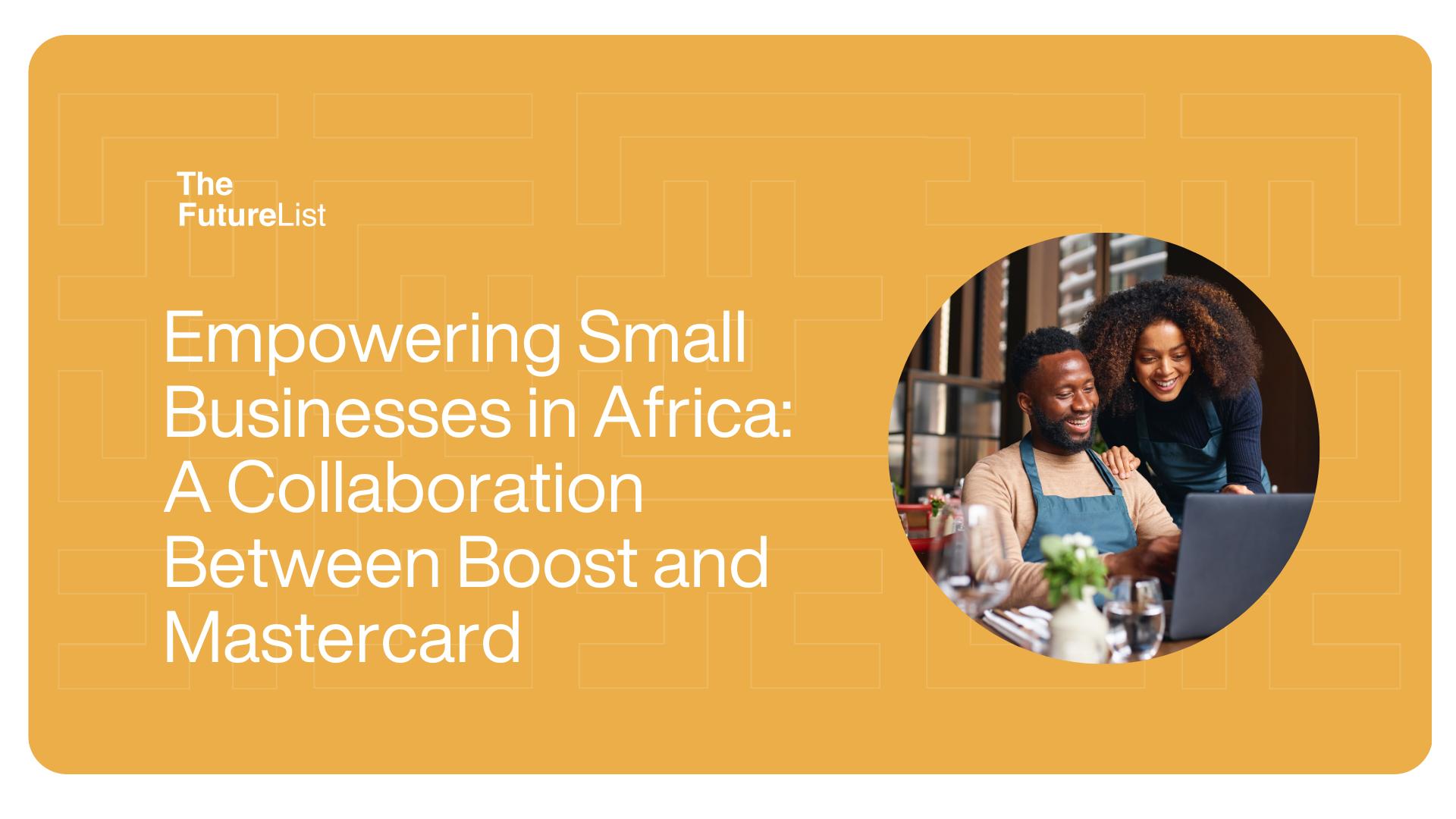
Empowering Small Businesses in Africa: A Collaboration Between Boost and Mastercard
By Lucy Kinyua
Boost is a B2B commerce platform that focuses on end-to-end digitisation of supply chains between manufacturers and point-of-sale retailers, particularly in emerging markets. The platform facilitates transactions and provides tools for managing orders, inventory, payments, and financing, aiming to streamline operations and enhance efficiency for businesses involved in the supply chain. In a move set to reshape the landscape for small businesses across Africa, Mastercard and Boost have forged a strategic alliance.
Their collaboration, as announced in a recent press release, marks a pivotal moment in the quest to empower micro, small, and medium enterprises (MSMEs) within the Fast-Moving Consumer Goods (FMCG) sector. By leveraging Mastercard’s expertise in payments technology and Boost’s innovative B2B commerce platform, the partnership brings together innovative digital payment solutions and embedded supply chain finance to address the unique challenges faced by MSMEs in accessing essential working capital and expanding their businesses.
To learn more about their collaboration, The FutureList interviewed Mike Quinn, Co-Founder and CEO at Boost, to explore the motivations behind the collaboration, its potential impact on small businesses in Africa, and the strategies employed to foster an inclusive digital economy.
Q&A:
The FutureList: What inspired the collaboration between Mastercard and Boost to provide digital payment wallets and supply chain finance solutions for small businesses in the FMCG sector in high-growth markets (Nigeria, Ghana, Kenya, South Africa, Egypt, and Senegal) in Africa?
Mike: Despite the proliferation of mobile money and fintech across Africa, the realities on the ground are that progress is uneven and the last mile of supply chains is mostly dominated by cash. Boost’s platform currently enables distributors and wholesalers to digitally record cash payments collected from their retailer customers so that cash can be easily tracked and reconciled, but what is really needed is to turn the entire supply chain cashless.
In addition, there is a huge working capital gap at the bottom of African supply chains that throttles growth for nearly all small businesses – especially during seasonal demand spikes. This gap exists despite a large supply of capital sitting on bank balance sheets, just waiting to be mobilised.
Boost has teamed up with Mastercard to tackle these challenges in a scalable way. Mastercard is one of the most trusted brands on the planet with a full suite of payment solutions and an expansive network of banks that Boost can leverage to expand our offering. They have also invested in both Airtel and MTN’s growing mobile money businesses.
The FutureList: What are some of the key tech features of Boost’s innovative platform as a service that will be accessible to small businesses through this collaboration?
Mike: Boost’s asset-zero, Platform-as-a-Service model enables end-to-end digitisation of a supply chain and can work in any market, segment, language and currency. Manufacturers gain visibility of their product flows and can digitally engage with their point-of-sale retailers to drive sales with direct-to-retailer promotions and build their brands. Small and medium distributors and wholesalers can easily manage their customers, sales agents, orders, payments and inventory to grow with control. Micro and small retailers can browse a localised product catalogue, access tailored promotions and place orders via WhatsApp without needing to download an app or drain their data. Our collaboration with Mastercard will add digital payments and embedded supply chain financing to this offering.
The FutureList: In what ways do you see this collaboration contributing to job creation and income generation within the FMCG sector in Africa, particularly for small businesses?
Mike: Nearly all small business owners have a plan to grow, whether it’s increasing turnover, adding new products or expanding to serve new customers. But inefficient manual (and cash) operations, inconsistent product supply and lack of access to affordable working capital are holding them back. Boost exists to solve these pain points so that their businesses can grow, which will create sustainable jobs and income. With Mastercard, we have the potential to do this at an infinite scale.
The FutureList: How will Boost’s platform integrate with existing digital payment infrastructure in Africa to ensure seamless adoption by MSMEs?
Mike: Boost will collaborate with Mastercard’s payment and bank partners to tap into the latest digital payment infrastructure. We will extend access and drive adoption of digital payments to primarily cash-based MSMEs that operate at the bottom of supply chains.
The FutureList: What strategies will be employed to ensure that MSMEs in remote or underserved areas have equitable access to these digital payment and credit solutions?
Mike: Boost’s model has been designed to support the digitisation of even the most remote and underserved areas. We have experience digitising orders and payments for MSMEs in underserved urban, peri-urban and rural areas in several markets.
The FutureList: Are there any partnerships or alliances with local governments or organisations in place to support the implementation and expansion of this collaboration?
Mike: Boost works through partnerships to serve the market as a “platform enabler.” We are just getting started and will continue to seek out ecosystem partners as we scale up. We are happy to speak to any entity who would like to extend access to the Boost platform in their country or community.
Get innovation insights from The FutureList weekly. Subscribe to our newsletter here
Categories
- Agritech
- Artificial Intelligence
- Biotech
- Blockchain
- Climate Tech
- Data Infrastructure
- Edtech
- Events
- Fashion
- Fintech
- Healthtech
- Infrastructure
- Innovation Memos
- Innovation Scout Program
- Insight
- Insurtech
- Machine Learning
- Martech
- Mobility
- Music and Media
- Partner Offers
- Perks
- Procurement
- Proptech
- Retailtech
- Ridehailing
- Ridesharing
- Robotics
- Space Aviation
- Supply Chain
- Talent
- Telecoms
- Uncategorized
- Venture Capital
- Wastetech
- Women In Tech